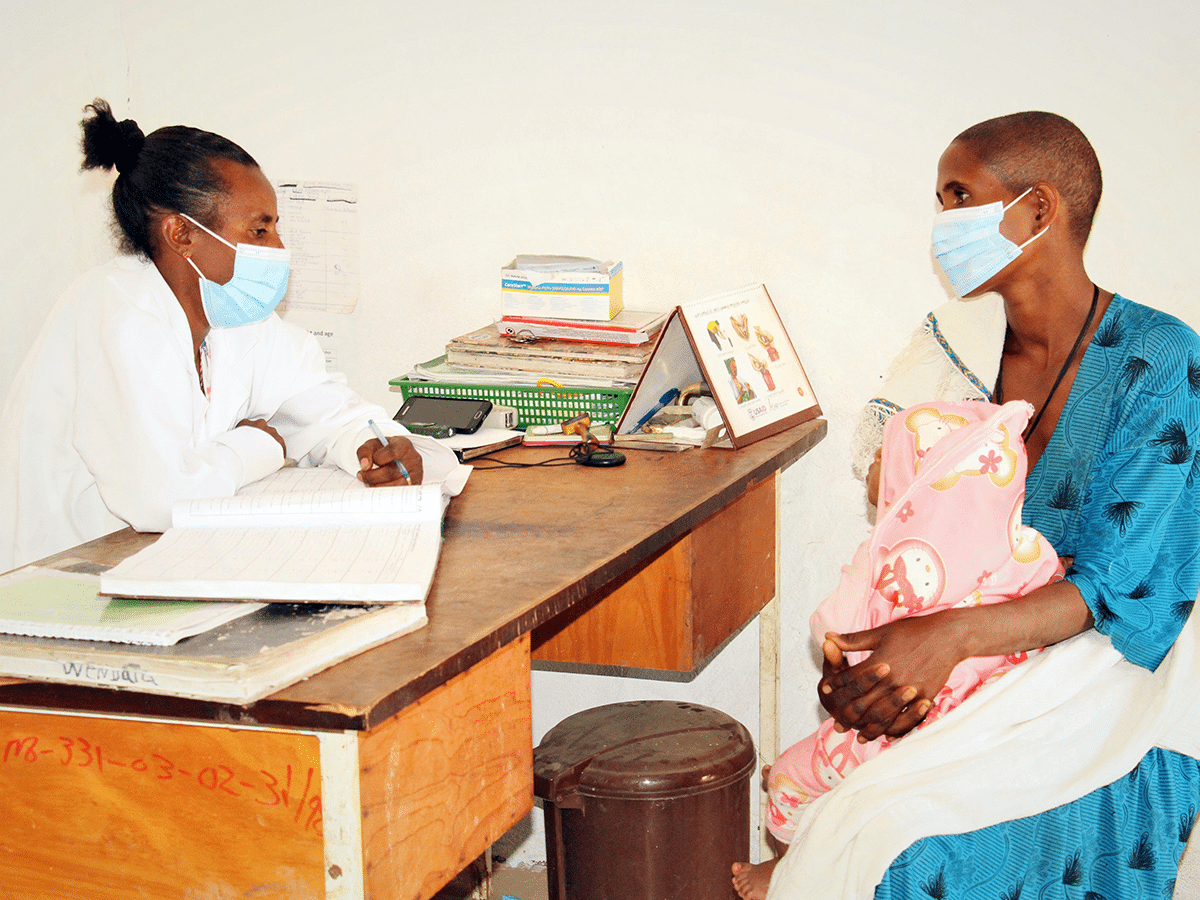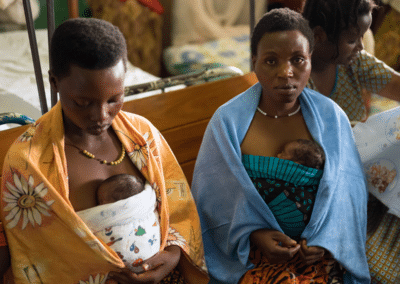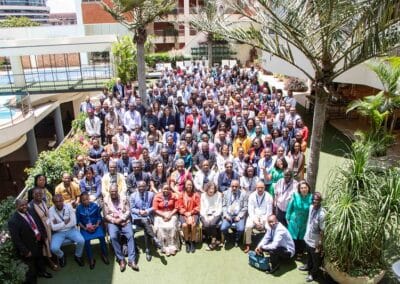Before the onset of the COVID-19 pandemic in Ethiopia, HIV positive pregnant and breastfeeding women made monthly visits to health facilities to collect their prescribed antiretroviral therapy (ART). Although Ethiopia’s Ministry of Health (MOH) was one of the first to take multi-month dispensing of ART to scale, pregnant and breastfeeding recipients of care were not eligible for this less-intensive approach.
When COVID-19 was reported in Ethiopia in 2020, fear of becoming infected at health facilities and restrictions on travel contributed to treatment interruptions.
“I just decided not to go,” said Aregash Wuletaw, a recipient of care at the Semien Health Center in Addis Ababa. Wuletaw stopped attending her routine prenatal appointments when she heard about the pandemic. “I heard health facilities are highly contagious and feared I would contract the virus once I stepped outside of my home. It wasn’t worth the risk to me and my pregnancy,” said Wuletaw.
With funding from the U.S. President’s Emergency Plan for AIDS Relief (PEPFAR) through the Centers for Disease Control and Prevention (CDC) ICAP in Ethiopia collaborated with MOH to develop interim national guidance for HIV services during COVID-19. Adaptations included new models of care for pregnant and breastfeeding women with HIV, including multi-month dispensing and reduced frequency of clinic visits to ensure continuity of prevention-of-mother-to child-transmission (PMTCT) services.
Starting in May 2020, ICAP supported and monitored the implementation of a three-monthly dispensing model (3-MMD) for pregnant and breastfeeding recipients of care on ART in 65 health facilities located in seven regions in Ethiopia. “As a newborn mother, I am happy I don’t have to go to the facility all the time and still have excellent health,” Wuletaw said of the 3-MMD intervention.
Following the introduction of this new model, MMD enrollment of HIV positive pregnant and breastfeeding women in the seven regions increased from 70 percent in May 2020 to 95 percent in September 2020. As of March 2021, 870 out of 1071 HIV positive pregnant and breastfeeding women are receiving 3-MMD in 65 facilities in Addis Ababa.
“One of the pros of the 3-MMD implementation is the increase in viral load suppression figures among HIV positive mothers,” said Zebideru Zewdie, MPH, PhD, National PMTCT technical advisor to the Ethiopia MOH. “The Ministry of Health in collaboration with ICAP will continue to make efforts to strengthen 3-MMD for PMTCT clients during pregnancy, breastfeeding, and beyond.”






